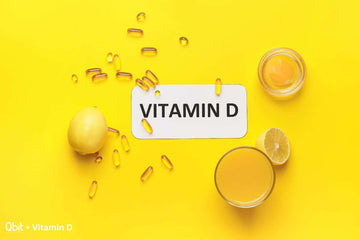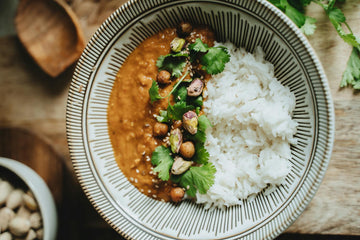Top Fruits and Vegetables High in Vitamin D for Optimal Health
Vitamin D is a crucial fat-soluble nutrient that plays a central role in maintaining bone density, supporting immune function, and regulating mood and energy. While sunlight is the primary natural source of vitamin D, specific fruits, vegetables, and fortified plant-based foods offer significant value in supporting optimal levels—especially for those with minimal sun exposure or following vegan lifestyles.
In this comprehensive guide, we detail the most powerful produce-based sources and synergistic foods that enhance vitamin D intake and bioavailability.

Understanding the Importance of Vitamin D
Vitamin D occurs in two major forms:
- Vitamin D2 (Ergocalciferol) – Primarily derived from fungi and yeast.
- Vitamin D3 (Cholecalciferol) – Naturally synthesized in human skin and sourced from animal-based products.
A deficiency in this essential vitamin can lead to osteomalacia, muscle weakness, chronic fatigue, depression, and increased susceptibility to infections.
Can Fruits and Vegetables Provide Vitamin D?
Fresh fruits and vegetables do not naturally produce vitamin D, with the exception of specific UV-exposed mushrooms. However, fortified produce-based items, such as plant milks and juices, and certain nutrient-dense foods that support vitamin D absorption and activation can make a substantial difference in maintaining overall vitamin D sufficiency.

Top Vegetables That Contain or Enhance Vitamin D
1. UV-Exposed Mushrooms — The Natural Plant-Based Powerhouse
Among all plant-based foods, mushrooms stand alone as the only natural source of vitamin D2. When exposed to ultraviolet light, their vitamin D content increases dramatically.
Top Picks:
- Maitake Mushrooms: Up to 786 IU per 50g
- Portobello Mushrooms (UV-treated): Around 450 IU per 100g
- Shiitake Mushrooms (UV-treated): Approximately 100 IU per 100g
Pro Tip: Always opt for mushrooms labeled “UV-exposed” or “sun-dried” for the highest vitamin D content.
2. Spinach and Kale — Magnesium and Vitamin K Rich Greens
While they do not contain vitamin D, these leafy greens enhance calcium utilization and support vitamin D's metabolic pathway by providing magnesium and vitamin K.
- Spinach: High in magnesium, which supports D3 activation.
- Kale: Loaded with vitamin K1, crucial for bone health synergy.
3. Broccoli — Detoxification and Hormonal Balance
Broccoli aids the liver’s detoxification process, facilitating the conversion of vitamin D into its active form (calcitriol). It's also rich in fiber, folate, and phytonutrients, making it essential in a vitamin D-optimized diet.

Best Fruits That Support Vitamin D Absorption
4. Avocados — The Healthy Fat Facilitator
Avocados are rich in monounsaturated fats, which help increase fat-soluble vitamin absorption, including vitamin D. They also provide magnesium, vital for converting vitamin D into its active state.
5. Bananas — Magnesium Boost for Vitamin D Activation
Bananas are a solid source of magnesium, which enhances the enzymatic processes involved in the kidney’s conversion of vitamin D into its usable form.
6. Berries (Strawberries, Blueberries) — Gut Health Enhancers
Berries support microbiome balance through antioxidants and fiber. A healthy gut improves nutrient synthesis and absorption, indirectly aiding vitamin D efficacy in the body.

Top Fortified Fruits and Plant-Based Alternatives with Vitamin D
7. Fortified Orange Juice — A Fruit-Based Vitamin D Staple
Although raw oranges do not provide vitamin D, fortified orange juice is a leading dietary source among fruit-based beverages.
- Up to 137 IU of Vitamin D per 240 ml serving
- Commonly fortified with vitamin D2 or D3, depending on the brand
8. Fortified Plant Milks — Dairy-Free and Vitamin D-Fortified
Plant-based milks, widely consumed as vegan dairy alternatives, are often fortified with vitamin D2 or D3 to meet nutritional demands.
| Milk Type | Average Vitamin D per Cup (240ml) |
|---|---|
| Almond Milk | 100–144 IU |
| Soy Milk | 107–120 IU |
| Coconut Milk | 100 IU |
| Oat Milk | 100 IU |
Check Labels: Ensure the product specifies “Fortified with Vitamin D” and ideally includes both D2 and D3 forms.
Other Synergistic Foods That Amplify Vitamin D Effectiveness
- Sweet Potatoes: Rich in beta-carotene and vitamin A, they support cell regeneration and immune response.
- Tomatoes: Contain lycopene and vitamin C, improving systemic circulation and nutrient transport.
- Beets: Promote detoxification, aiding the body's internal absorption and utilization mechanisms.

Vitamin D-Rich Meal Ideas Using Fruits & Vegetables
1. Mushroom Avocado Toast
- Toasted whole-grain bread
- Mashed avocado
- Sautéed UV-exposed mushrooms in olive oil
- Sprinkle of sea salt, lemon juice, and black pepper
2. Fortified Orange-Berry Smoothie
- 1 cup fortified orange juice
- ½ cup strawberries
- ½ banana
- 1 tbsp chia seeds
- 1 cup oat milk (fortified)
3. Warm Kale & Sweet Potato Salad
- Roasted sweet potatoes
- Steamed kale
- Walnuts
- Olive oil dressing
- Topped with grilled mushrooms
Tips to Maximize Vitamin D from Plant-Based Diets
- Pair vitamin D-rich foods with fats (e.g., nuts, seeds, avocado) to enhance absorption.
- Include magnesium-rich foods (like leafy greens, bananas, and whole grains) daily.
- Consume fermented foods or probiotics to maintain gut health, crucial for nutrient uptake.
- Expose mushrooms to sunlight at home for 30–60 minutes to naturally boost D2 levels.
- Aim for early morning sunlight exposure (15–20 minutes) to stimulate vitamin D3 synthesis.
FAQ – Frequently Asked Questions
Can I rely solely on fruits and vegetables for vitamin D?
No. Apart from UV-exposed mushrooms and fortified foods, produce contains minimal natural vitamin D. Consider supplements if you're vegan or have limited sun exposure.
Is Vitamin D2 from mushrooms enough for daily needs?
Partially. While helpful, vitamin D2 is less potent than D3. It may require higher intake or combination with D3 supplements for optimal benefit.
What happens if I don’t get enough vitamin D?
Deficiency can cause weak bones, muscle cramps, fatigue, depression, and increased risk of chronic diseases like osteoporosis and autoimmune disorders.
Which plant milk is best for vitamin D?
Almond or soy milk, especially brands fortified with D3 (from lichen or vegan sources), provide the most balanced vitamin D intake.
Conclusion: Embrace a Vitamin D-Enriched Plant-Based Lifestyle
Incorporating UV-exposed mushrooms, fortified beverages, and nutrient-dense produce into your daily meals is the key to a sustainable and effective vitamin D strategy. For those avoiding animal products or lacking sun exposure, this approach ensures strong bones, resilient immunity, and enhanced energy levels—all without compromising a plant-based lifestyle.
Be intentional in selecting the right produce and fortified foods. Balance your plate with sources that aid absorption. And most importantly, make your nutrition work smarter, not harder.












